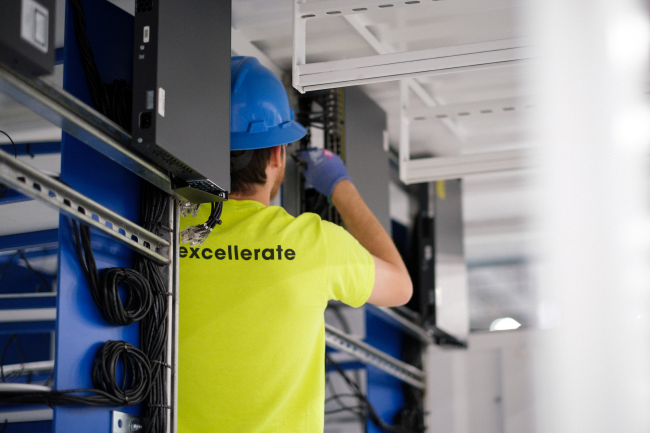February 1, 2024 Josh Ring
Safety Advantages Gained Through Industrialized Construction
An article published in 2023 by Associated Builders and Contractors notes that the construction industry will need to attract more than 500,000 additional workers on top of the normal pace of hiring to meet the demand for labor. This hiring scenario is still very much an issue in 2024, as finding skilled labor in the trades is becoming increasingly difficult, exacerbated by an aging population of trades individuals leaving due to retirement. How can the construction industry thrive when manpower needs continue to be an issue? One way that companies can be successful is by implementing industrialized construction principles into their processes and product design.
Industrialized construction (IC) is the process through which construction aims to improve productivity through mechanization and automation. The process commonly involves modularization, prefabrication, preassembly and mass production.
At Excellerate, many core IC principles provide benefits to the construction process. Focusing on safety throughout each step of the planning, building and delivery process ensures the protection of each team member. Safety is a fundamental element that significantly influences how efficiently projects are carried out. Safety measures aren’t obstacles; they are key contributors to the smooth and speedy execution of IC tasks. Let’s dig deeper into the critical role that safety plays in enhancing productivity at Excellerate:
- Minimized Downtime: Excellerate prides itself on creating world-class opportunities for our team members to succeed. Through proper training, planning and an extensive mentorship program, the number of safety incidents are greatly reduced. This reduction translates into less downtime caused by work stoppages, allowing for continuous progress on each stage of a project.
- Boosted Worker Morale and Retention: A safe work environment at Excellerate fosters positivity and elevates employee morale. When workers feel secure and valued, their motivation and engagement levels rise, leading to increased productivity. Moreover, a safe workplace contributes to higher retention rates, reducing the need for recruiting and training new workers.
- Streamlined Processes: Safety preparation at Excellerate involves meticulous planning and organization prior to the work starting. This detailed planning extends to other aspects of the IC process, resulting in more structured and efficient workflows. The organized approach minimizes errors, avoids rework and streamlines processes, ultimately contributing to enhanced productivity while maintaining safety throughout.
- Optimized Resource Allocation: Excellerate ensures that team members are provided with appropriate tools, equipment and resources at each stage of the IC process. Investing in quality equipment and ensuring proper maintenance not only promotes safety through use of the right tool but also optimizes productivity.
- Faster Project Completion: At Excellerate, a safe work environment leads to fewer disruptions, allowing teams to maintain a steady pace at each stage of the process. Completing tasks without unexpected setbacks or delays enables adherence to project timelines, resulting in faster completion and reduced overall costs.
- Encouraging Innovation and Adaptability: Prioritizing safety at Excellerate fosters a culture of innovation and adaptability. Teams committed to safety are more likely to embrace new technologies and methodologies that enhance productivity. Furthermore, a safe environment encourages workers to propose improvements and innovations, further boosting overall efficiency. Team members who submit innovations are acknowledged and rewarded for their ingenuity.
Excellerate understands the relationship between safety and productivity and the positive impact it has not only on our team members but the overall organization. By incorporating safety into each step of the industrialized construction process, Excellerate drives efficiency, streamlines processes, reduces downtime and fosters innovation. An uncompromised focus on keeping our team safe not only safeguards the well-being of workers but also acts as a cornerstone for successful, efficient and cost-effective project completion in the ever-evolving landscape of industrialized construction.
Prioritizing safety at Excellerate isn’t just an obligation; it’s a strategic decision that protects our team members, fuels productivity and sets the stage for sustainable growth and success in the construction industry.
Interested in learning more? Check out our other articles and subscribe to be the first to know about future Excellerate blog articles.

 Safety Advantages Gained Through Industrialized Construction
Safety Advantages Gained Through Industrialized Construction

